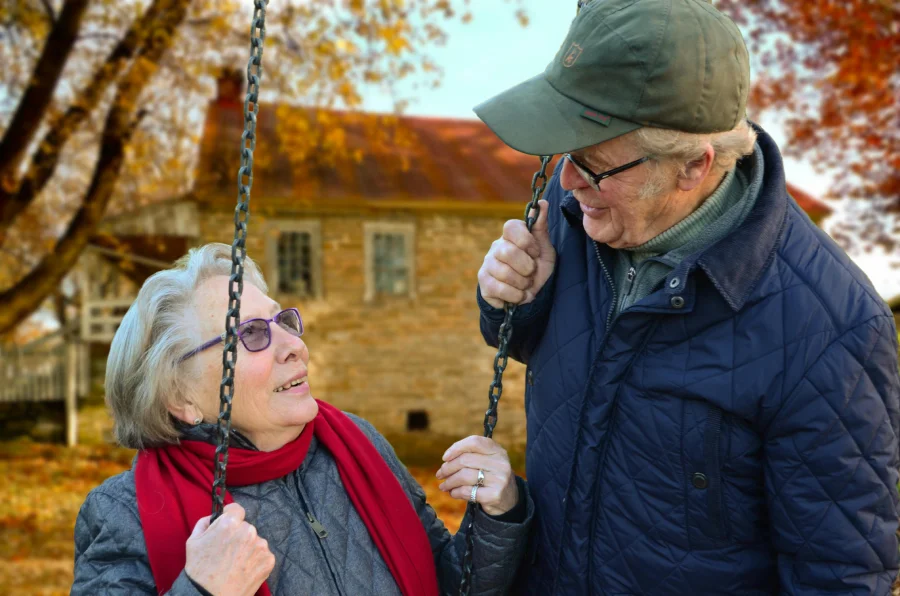Staying active and engaged is important for everyone, but it’s especially meaningful for people living with dementia.
Memory loss and cognitive changes can affect how someone experiences the world. However, thoughtful, supportive activities may still bring joy, comfort, and connection.
Whether it’s a simple task at home or a creative way to spark conversation, the right activity may help improve mood, maintain skills, and strengthen relationships.
In this blog, we’ll explore a range of activities to do with people living with dementia. These activities are designed to be flexible, meaningful, and tailored to each individual’s abilities and interests.
For personalised advice on supporting a loved one with dementia at home, contact our team at myCare today.

Care and Support at Home
In the UK, around 982,000 people are currently living with dementia, a figure expected to grow to 1.4 million by 2040.
As more families choose to care for loved ones at home, the need for compassionate, tailored support has never been more important.
At myCare, we support families with personalised home care plans. These plans adapt to your loved one’s cognitive, emotional, and physical well-being.
We assist with personal tasks while also encouraging meaningful activities and social connections. Our goal is to make each day feel safe, supported, and enriching.
If you’re caring for someone with dementia at home, you don’t have to do it alone. We’re here to help you navigate the journey with kindness, experience, and guidance you can trust.
Routine and Consistency
People living with dementia may require additional support to complete self-care, mobility or communication tasks.
This highlights the importance of regular care visits for individuals living with dementia. Consistent routines help create a sense of stability, which may also ease confusion and reduce anxiety.
Whether it’s the same friendly face arriving each day or set times for meals, medication, and activities, routine matters. These small consistencies can make a big difference to emotional well-being and daily comfort.
Reassurance for You and Your Loved One
Reassurance is essential not only for the person living with dementia but also for their family. For the client, gentle reassurance may ease distress, reduce agitation, and help them feel secure in moments of confusion.
For families, knowing their loved one is supported with kindness and patience brings peace of mind. Care workers play a key role in this. They offer calm communication, consistent presence, and emotional support. This may help everyone feel more secure and connected.
Activities That Support Your Loved One
Helping your loved one feel secure and comfortable at home is key. However, it’s also important to keep their mind engaged and active. Here, we’ll outline some key strategies and activities that may help your loved one.
1. Remembrance and Emotional Connection
Activities that spark memories and encourage conversation may be deeply comforting. Consider looking through photo albums, listening to music, or discussing meaningful past experiences.
This may help build a stronger connection and boost mood. These activities also support a sense of identity and continuity, which is vital for individuals with dementia.
These moments may also be incredibly special for family members. They offer opportunities to share stories and strengthen bonds.
2. Gentle Movement
Light physical activity may support both physical and cognitive well-being. Simple exercises such as walking, stretching, chair yoga, or dancing to favourite songs are great options. They may help maintain mobility and improve mood.
Even small tasks like watering plants or helping in the kitchen may promote a sense of purpose while keeping the body gently active.
3. Purposeful Tasks and Independence
Purposeful, everyday tasks may help people living with dementia feel more independent and in control. Activities like folding laundry, sorting items, or setting the table support routine. Likewise, they may also offer a sense of usefulness and achievement.
By encouraging involvement in simple, familiar tasks, you may help maintain confidence and daily function, key to preserving a person’s independence for as long as possible.
When Activities Don’t Go to Plan
Not every activity will go smoothly, and that’s completely okay. People living with dementia can have good days and challenging ones. Their interest or ability to participate may vary from moment to moment.
If an activity isn’t going to plan:
- It’s okay to take a break. Sometimes, a few minutes of rest, a change of scenery, or simply pausing for a cup of tea may help reset the moment.
- Be flexible and follow their lead. If they’re not enjoying something or seem unsettled, it’s fine to switch to a different task or just sit together quietly.
- Focus on how they feel, not what gets done. Even if the activity isn’t completed, what matters most is that they feel supported and connected.
- Try again another time. What doesn’t work today might be just right tomorrow. A calm, unhurried approach helps reduce pressure and creates space for genuine connection.
The goal isn’t perfection, it’s comfort, presence, and shared moments. Let the person’s mood and needs guide the way.
Keeping the Home Secure and Comfortable
Creating a secure and comfortable home environment is essential for someone living with dementia. As memory and judgment change, certain risks, like trips, burns, or wandering, may become more likely.
A well-organised, familiar space may help reduce these risks and support greater confidence at home.
Assessing Your Home
When supporting someone with dementia at home, it’s important to regularly assess the space for security and comfort.
Needs and behaviours change over time. As they do routines and environments may need to be adjusted to prevent accidents and reduce stress.
Here are some key areas to check:
General Areas
- Clear walkways of clutter or tripping hazards.
- Install grab rails in key areas (hallways, bathroom, stairs).
- Check for good lighting in all rooms, especially at night.
Kitchen and Cooking
- Consider disconnecting the oven or stove if it’s no longer safe to use.
- Store sharp or hazardous items (e.g. knives, cleaning products) out of reach.
- Use automatic shut-off kettles or appliances.
Bathroom Hygiene and Bathing
- Use non-slip mats and a shower chair if needed.
- Install grab bars near the toilet and in the shower.
- Keep bathing routines simple and predictable.
Home Security
- Check that all doors and windows are locked at night.
- Use sensor lights or motion detectors for outdoor areas.
- Consider door alarms or GPS trackers if wandering is a concern.
Daily Routines
- Create a written or visual schedule to support familiarity.
- Keep commonly used items in consistent, easy-to-reach places.
- Encourage regular mealtimes, hydration, and rest.
These practical checks and small adjustments may help your loved one feel supported and confident at home.

How Care Culture Supports Your Loved One
A strong care culture is built on inclusion, respect, and meaningful engagement. Encouraging your loved one to take part in daily tasks may help them feel involved and valued.
These activities should always be tailored on a case-by-case basis, based on their abilities and comfort. When care is approached as something done with them, rather than for them, it fosters dignity, connection, and a greater sense of purpose.
How myCare Supports Your Loved One
At myCare, we take a personalised and practical approach to support, balancing dignity and independence. We work closely with families and clients to help them feel confident in our care.
Domestic duties like household cleaning are typically the family’s responsibility. However, our team is also there to encourage and supervise your loved one as they engage in simple, everyday tasks. These tasks may include making a cup of tea or washing up afterwards.
This approach helps promote independence while ensuring the right level of support is always in place. By encouraging participation in daily routines, we can help your loved one stay engaged in a way that feels natural and empowering.
What if my Loved One Needs More Support?
If your loved one needs more support, we’re happy to provide it. After an in-depth discussion of your loved one’s needs and preferences, we may offer private support.
Private support offers greater flexibility and can include a range of services. This may involve accompanied outings to familiar, accessible places, for instance, local parks, libraries, galleries, shopping centres, or museums.
These outings not only support social connection and stimulation but also offer a welcome change of scenery and a sense of normalcy.
We also offer respite care for family members. This gives you the chance to rest and recharge while knowing your loved one is in trusted hands.
Private support helps care adapt as needs change, offering reassurance, comfort, and a greater quality of life for both clients and their families.
Support Your Loved One the Right Way
Finding the right activities and routines for someone living with dementia can be meaningful. They may offer comfort, encourage connection, and help bring a sense of purpose to each day.
This might look like gentle movement or memory-based tasks. It could also mean creating a secure home or encouraging independence. Often, it’s the small, thoughtful moments that leave the biggest impact.
At myCare, we’re here to support you through every stage. You might need practical guidance, tailored home care, or extra private support. Whatever it is, our team is committed to care that’s respectful, reliable, and deeply personal.
Reach out to myCare today to learn how we may help you create a care plan that supports your loved one’s wellbeing, at home, and with heart.





